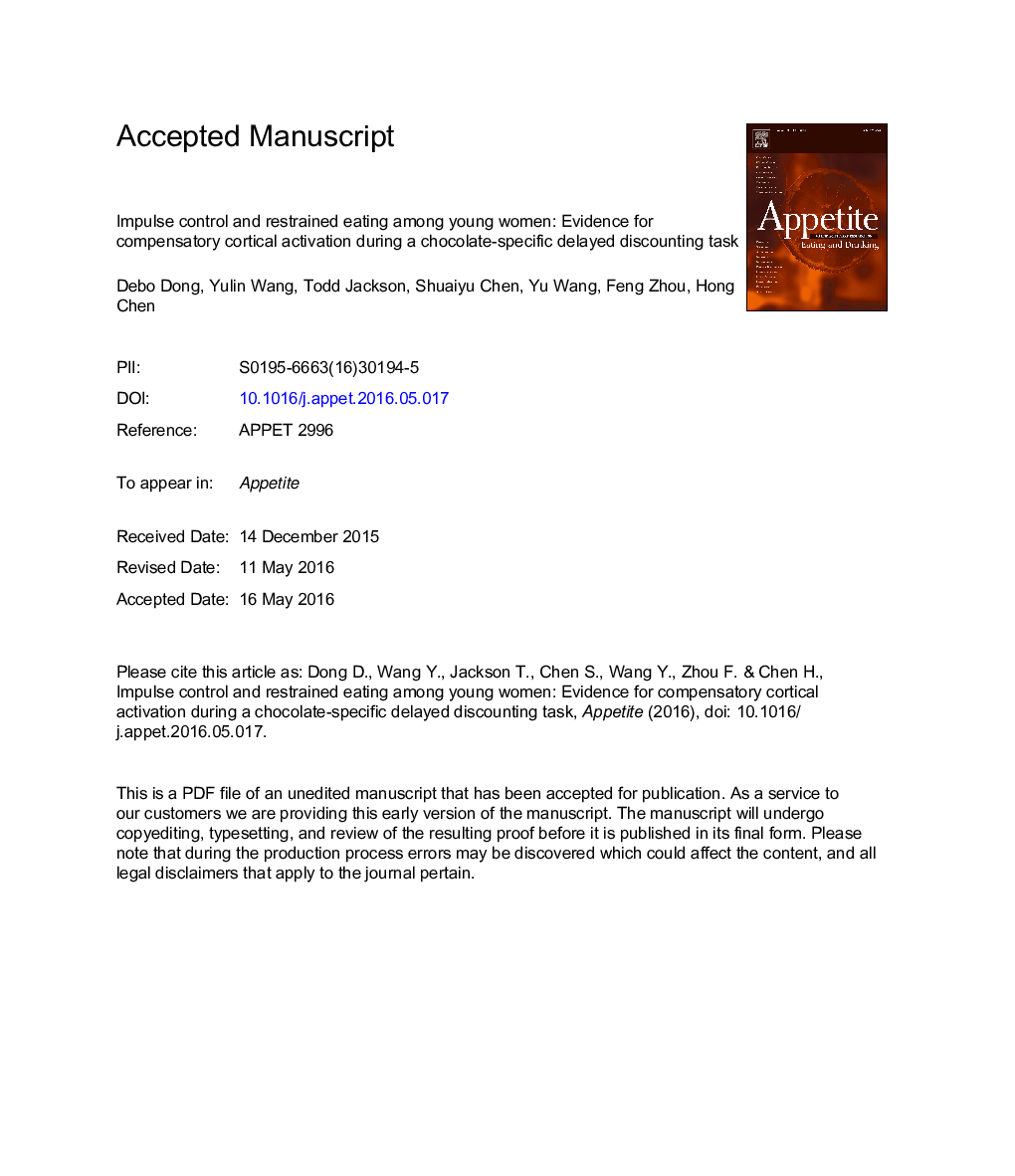| Article ID | Journal | Published Year | Pages | File Type |
|---|---|---|---|---|
| 7307147 | Appetite | 2016 | 31 Pages |
Abstract
Theory and associated research indicate that people with elevated restrained eating (RE) scores have higher risk for binge eating, future bulimic symptom onset and weight gain. Previous imaging studies have suggested hyper-responsive reward brain area activation in response to food cues contributes to this risk but little is known about associated neural impulse control mechanisms, especially when considering links between depleted cognitive resources related to unsuccessful RE. Towards illuminating this issue, we used a chocolate-specific delayed discounting (DD) task to investigate relations between RE scores, behavior impulsivity, and corresponding neural impulse control correlates in a functional magnetic resonance imaging (fMRI) study of 27 young women. Specifically, participants were required to choose between more immediate, smaller versus delayed, larger hypothetical chocolate rewards following initial consumption of a chocolate. As predicted, RE scores were correlated positively with behavior impulse control levels. More critically, higher RE scores were associated with stronger activation in impulse control region, the dorsal-lateral prefrontal cortex (DLPFC) during the completion of difficult decision trials reflecting higher cognitive demands and resource depletion relative to easy decision trials. Exploratory analyses revealed a positive correlation between RE scores and activity in a reward system hub, the right striatum. Moreover, a positive correlation between left DLPFC and striatum activation was posited to reflect, in part, impulse control region compensation in response to stronger reward signal among women with RE elevations. Findings suggested impulse control lapses may contribute to difficulties in maintaining RE, particularly when cognitive demands are high.
Related Topics
Life Sciences
Agricultural and Biological Sciences
Food Science
Authors
Debo Dong, Yulin Wang, Todd Jackson, Shuaiyu Chen, Yu Wang, Feng Zhou, Hong Chen,
